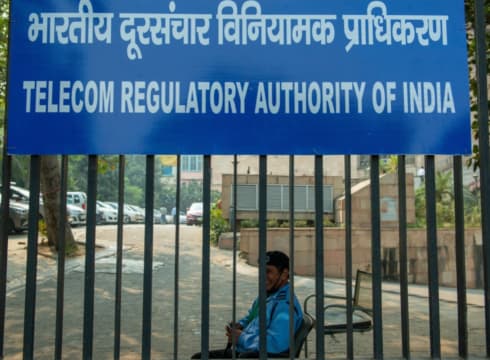In its report, TRAI noted that the recent revolution in the OTT streaming service space has led to several gaps in the policy space of content regulation
OTT content is currently regulated under the provisions of several acts, including the Information Technology (IT) Act, 2000
The existing regulatory oversight framework for content regulation may need a complete overhaul, in line with many other nations, where a converged regulator regulates carriage and content: TRAI
Inc42 Daily Brief
Stay Ahead With Daily News & Analysis on India’s Tech & Startup Economy
The Telecom Regulatory Authority of India (TRAI) has issued a consultation paper seeking stakeholders’ suggestions to overhaul the existing legal and licensing norms, spectrum management, and regulatory framework around the telecommunications and broadcasting space in India.
In its paper titled ‘Regulating Converged Digital Technologies and Services-Enabling Convergence of Carriage of Broadcasting and Telecommunication services’, TRAI has noted that in the converged era, regulatory and licensing frameworks require revisiting to help industry players offer new services in a converged era and provide it in a ubiquitous and cost-efficient manner.
It, however, added that the recent revolution in the over-the-top (OTT) streaming service space has led to several gaps in the policy space of content regulation.
“As far as regulation of content in the broadcasting sector is concerned, the situation has become increasingly complex due to the onset of a large number of OTT streaming providers. The OTT revolution has led to many gaps in the policy space of content regulation,” TRAI said. It observed that the OTT content oversight policy is still evolving in India and a work in progress.”
Meanwhile, in the paper, the broadcast and telecom regulator noted that the Indian national regulators need to respond to technological innovations and deal with the changes in their regulatory frameworks, policies, and legislation while participating stakeholders need to be increasingly competitive.
OTT content is currently regulated under the provisions of several acts, including the Information Technology (IT) Act, 2000.
With a current user base of about 423 Mn, as per a December 2022 report, the OTT space in India has started grabbing more attention for increased regulation from the government. In the draft Indian Telecommunication Bill, 2022, the Ministry of Communications proposed to widen the definition of telecommunication services to include OTT communication services.
However, the step has led to various industry stakeholders, including the TRAI, opposing such a proposal.
Despite the criticism, the Union government has chosen to intervene in the matter. Recently, citing the need to protect the Indian cultural landscape, Union minister Piyush Goyal said that if the entertainment industry does not regulate OTT platforms, then the Centre would take up the responsibility.
TRAI has noted that the existing regulatory oversight framework for content regulation is “patchy” and “inadequate at its best”, and may need a complete overhaul in a converged era, in line with many other nations, where a converged regulator regulates carriage and content.
“…there is a need to further expand the definition “telecommunication services” and clearly bring the ITeS (Information Technology enabled Services) also under its ambit. Also, many of the regulatory powers are with various ministries thereby bringing convergence in governance all the more challenging,” the paper added.
Besides, TRAI emphasised the need to examine issues related to cloud services and asked industry stakeholders to come up with measures that will help the government to respond appropriately when required.
As per TRAI, convergence can influence the way governments develop appropriate policies keeping social welfare in view, the manner in which enterprises compete in the market and individuals communicate with each other, benefitting from efficient, lower-cost, innovative, and new value-added products and services.
TRAI has asked stakeholders to provide their comments by February 27 and counter comments by March 13.
{{#name}}{{name}}{{/name}}{{^name}}-{{/name}}
{{#description}}{{description}}...{{/description}}{{^description}}-{{/description}}
Note: We at Inc42 take our ethics very seriously. More information about it can be found here.


